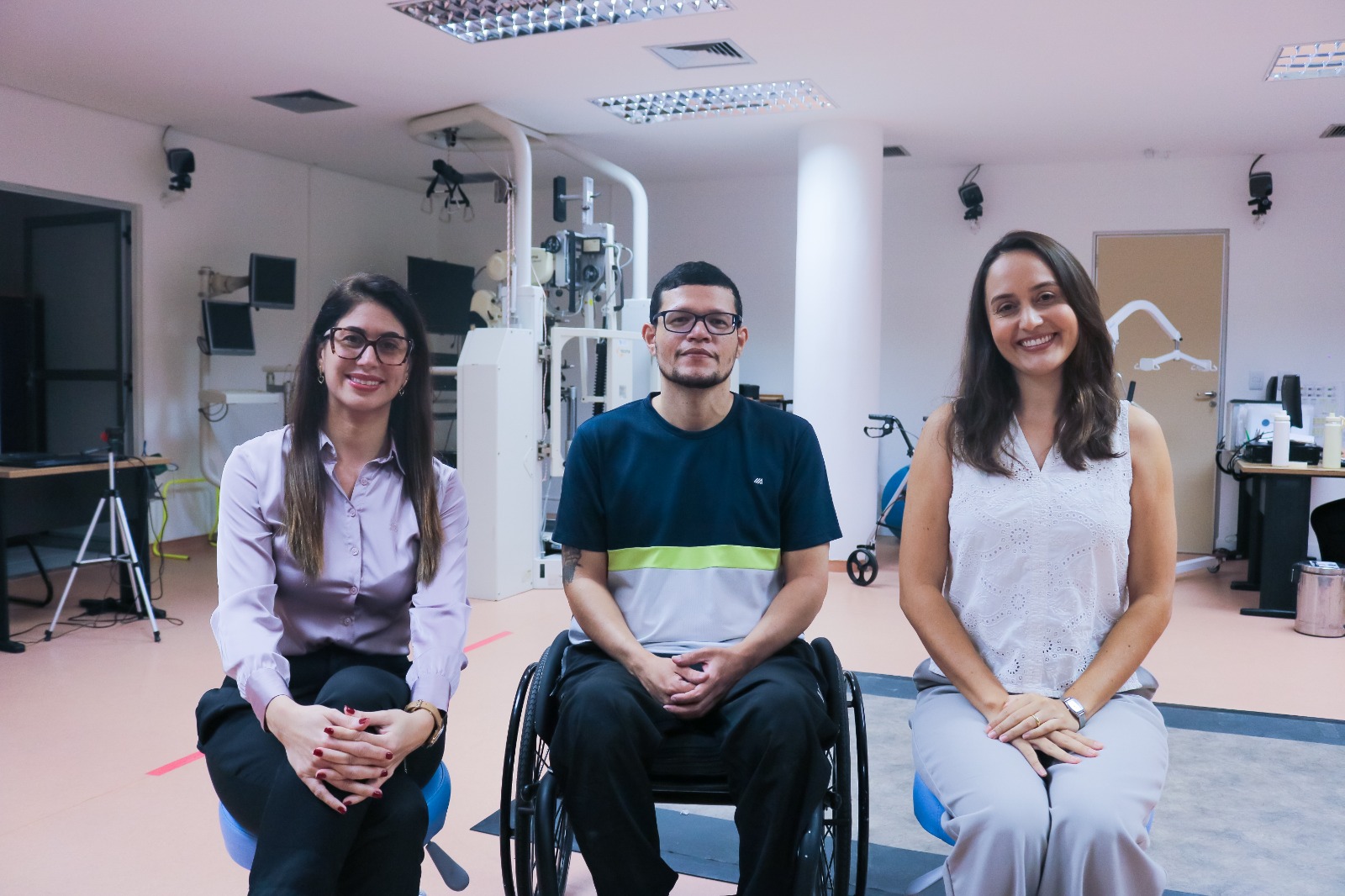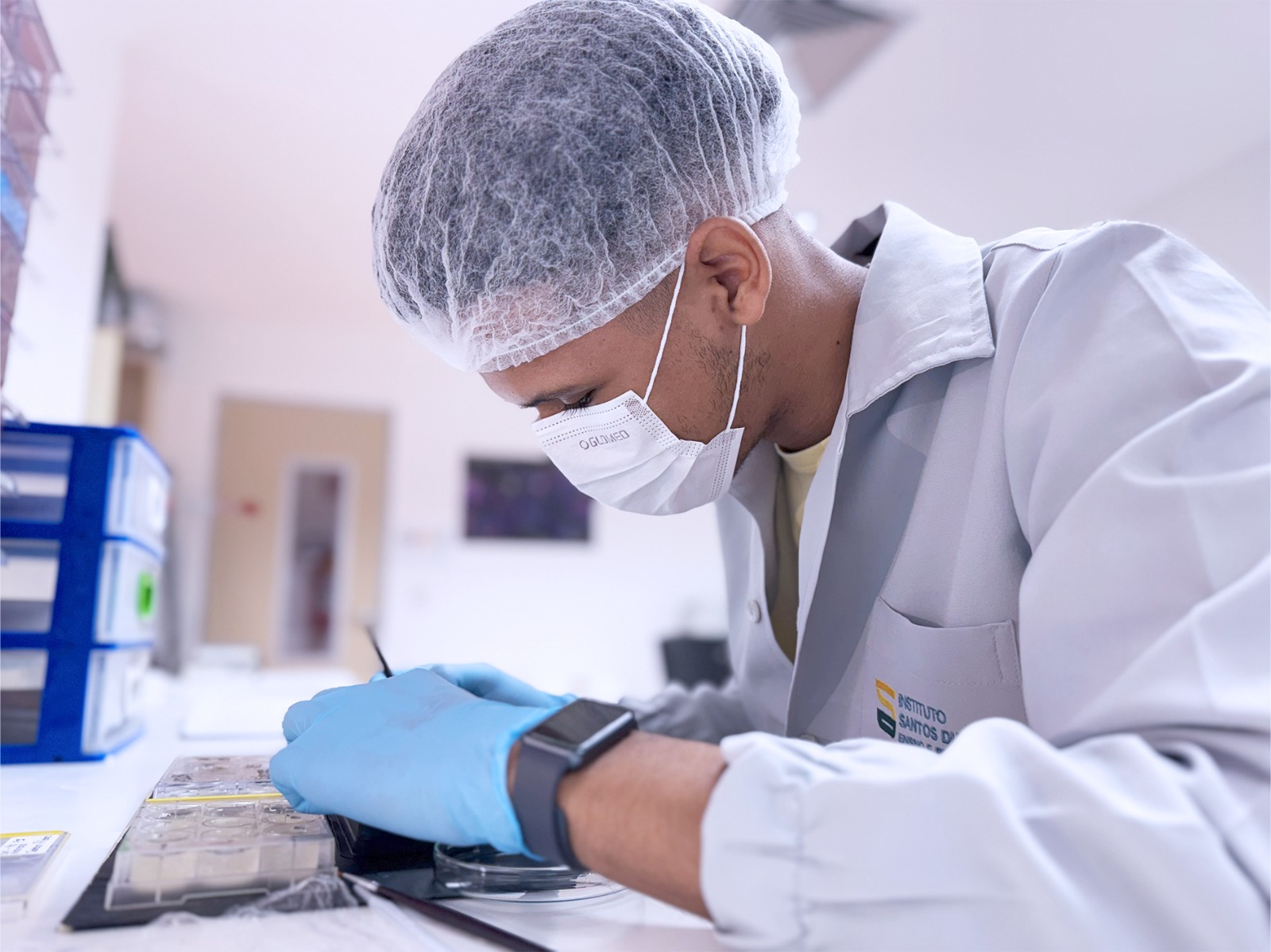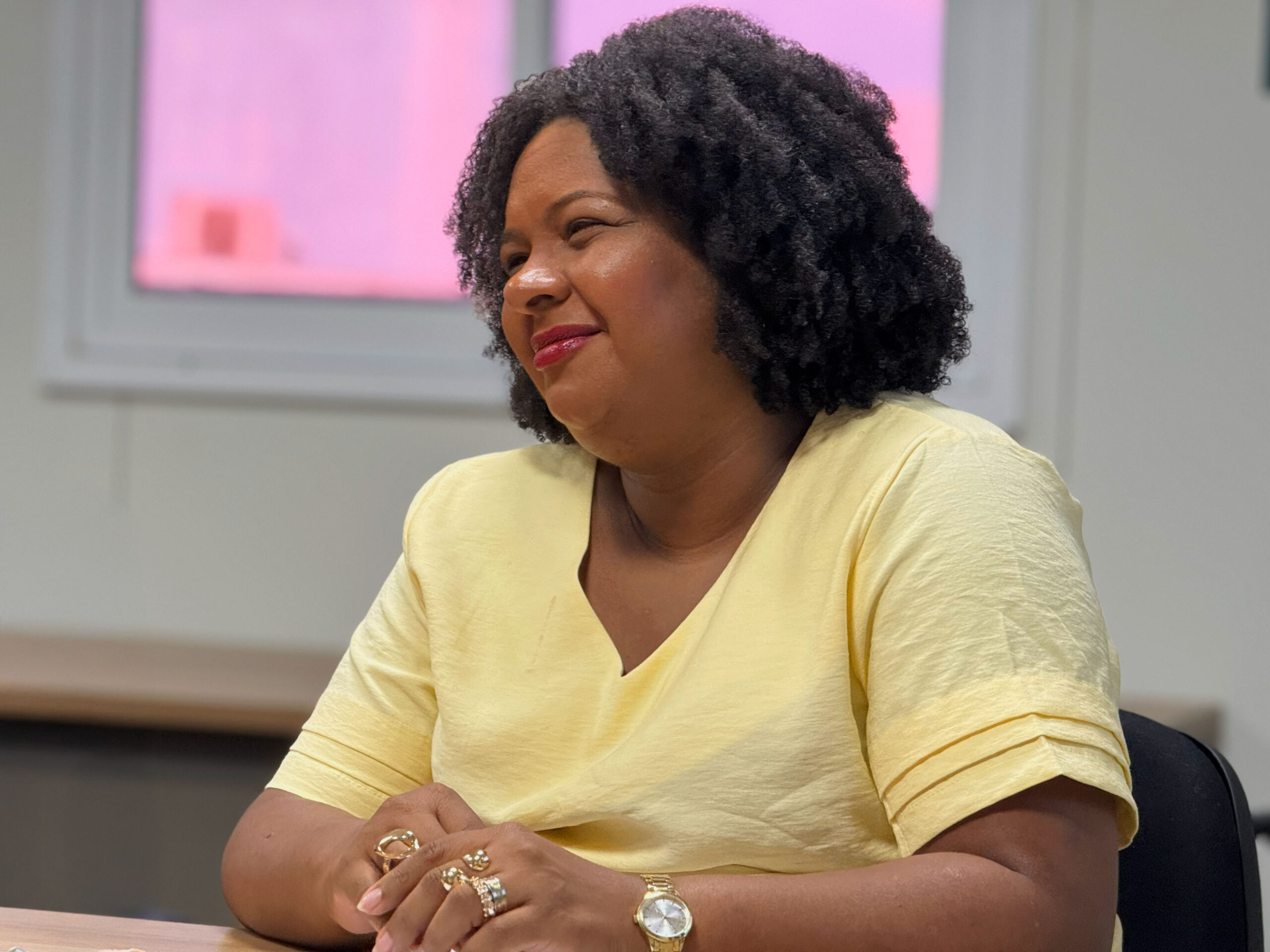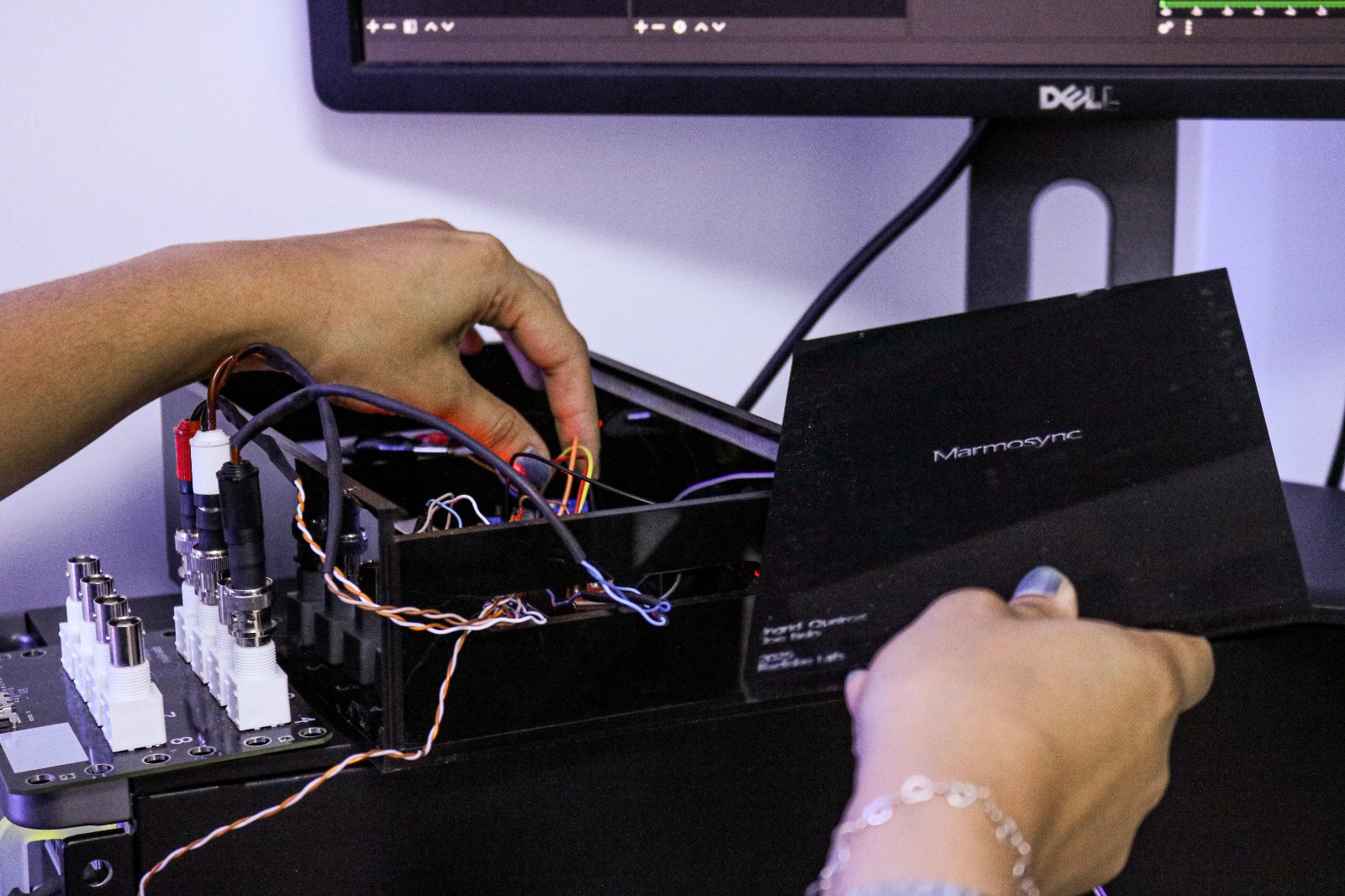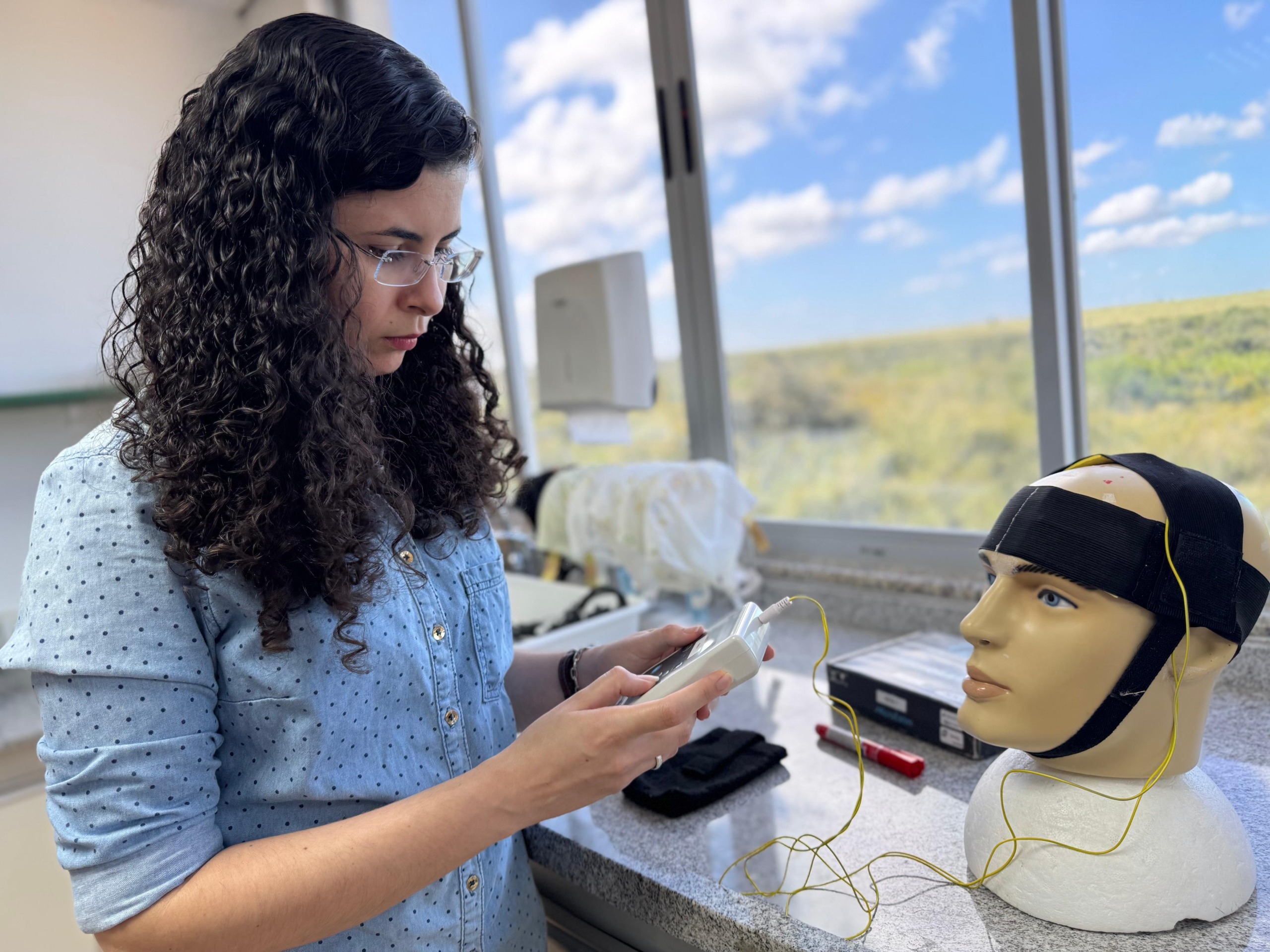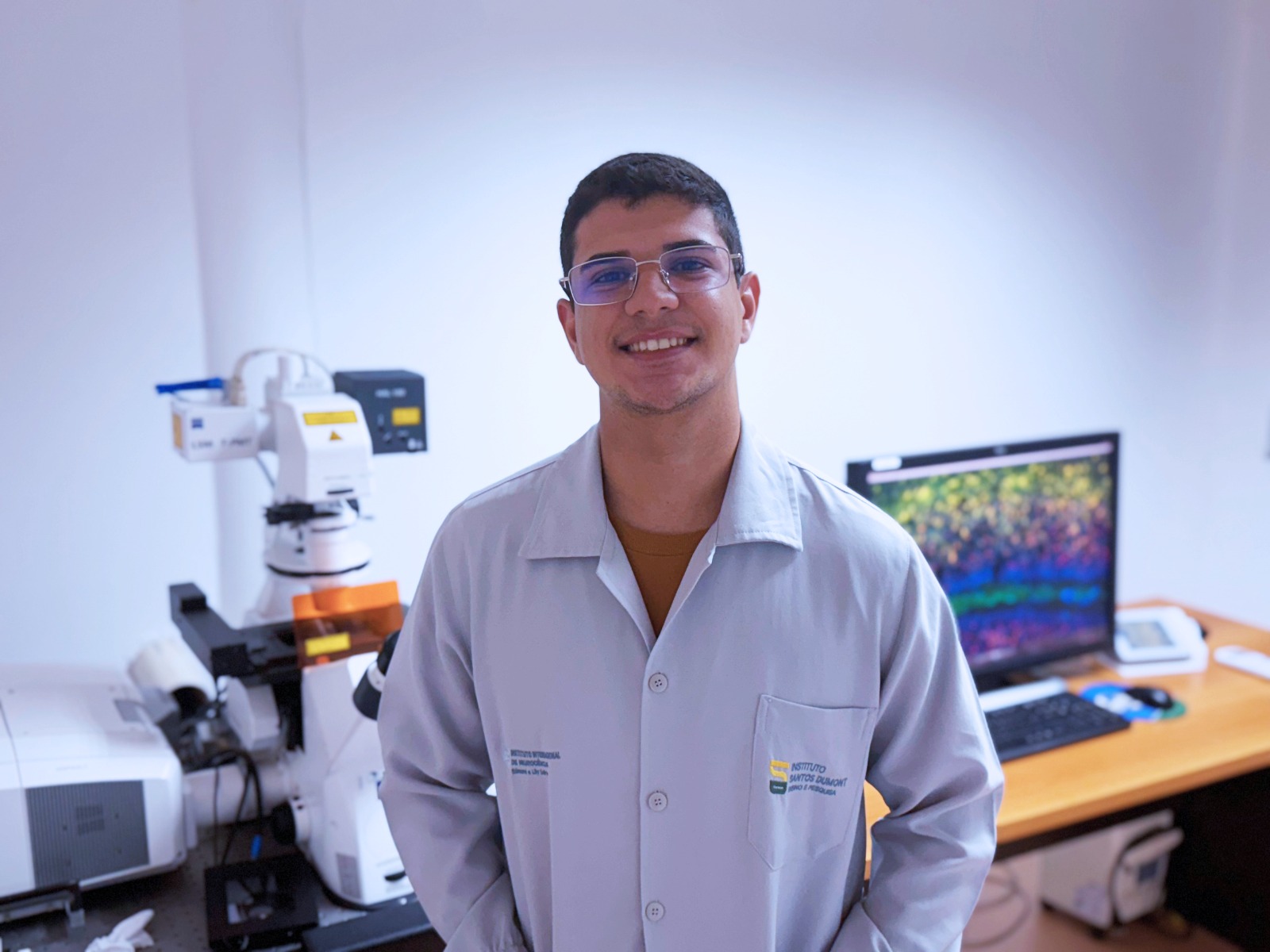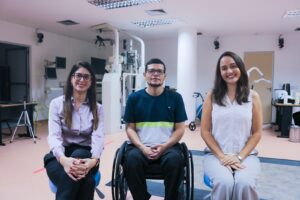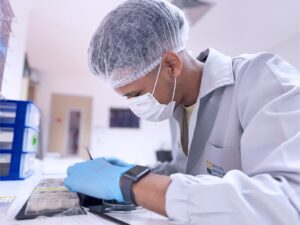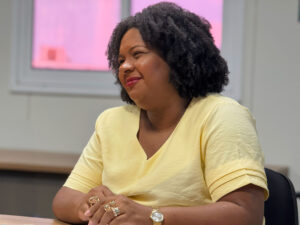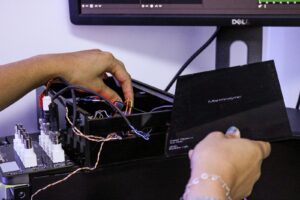At the age of 13, as she transitioned from childhood to adolescence, a gunshot changed Thainá da Silva Lourenço's life forever. Seven years later, she carries with her the consequences of the spinal cord injury suffered in the first thoracic vertebra, just below the neck, which left her without sensitivity and orderly movements from that point on. Thainá is one of more than 303 thousand people living with some type of disability (visual, hearing, motor, mental and/or intellectual) in Rio Grande do Norte, according to the most recent data from the Brazilian Institute of Geography and Statistics (IBGE). September 21st is dedicated, throughout Brazil, to the Fight for People with Disabilities. Lack of structure and prejudice are common in the daily lives of this population.
“I was shot and, due to that shot, I suffered a spinal cord injury. It will be seven years. I walked, I didn’t need help from other people so much”, declares Thainá da Silva Lourenço. It is included in IBGE statistics that indicate a greater occurrence of disabilities among women in Rio Grande do Norte. According to the National Health Survey (base year 2019), there are approximately 180 thousand women with disabilities in the State, compared to 122 thousand men. For four years, Thainá has been undergoing treatment at the Santos Dumont Institute (ISD) clinics, in Macaíba. Through the Anita Garibaldi Health Education and Research Center (Anita), she receives multidisciplinary care with a physiotherapist, gynecologist, psychologist, urologist, neurologist and, more recently, an obstetrician.
According to ISD's multidisciplinary physiotherapist preceptor, Heloísa Britto, the gunshot suffered by Thainá da Silva Lourenço caused tetraparesis, which is an incomplete paralysis of the lower or upper limbs. “The bullet went through a gap in the gate and hit the neck. Trachea, esophagus and throat were destroyed”, recalls his mother, Telma da Silva. Because of the spinal cord injury, Thainá's intestine and bladder were neurogenic, that is, she began to present changes in the functioning of her bladder and intestine resulting from neurological dysfunctions.
“Her death certificate was filled out. Doctors didn't believe she would survive. One of them asked if I knew how to pray. He said I should hand it over to God, as the situation was very serious. At one point, she had a birth and death certificate. All that was missing was the doctor’s signature”, adds the mother while assisting her daughter in another physiotherapy session at ISD. Thainá was shot while “playing” Russian roulette with two friends of the same age group. She spent two months hospitalized, 15 of which in an intensive care unit and 22 intubated.
Difficulties
Facing a society that is not prepared, as well as a city full of obstacles for wheelchair users, is, according to Thainá, her biggest challenge as a person with a disability. These questions, however, do not discourage her. She argues that the general population should have more access to information about people with disabilities so that social and architectural barriers can be broken down. “There is prejudice, there are difficulties. Because in everything I need help and I have to ask for it. But, I think that today I am happier than before. I am free, I can be myself. It’s about not paying attention to what others say and living life the way it should be lived”, says the young woman who created an Instagram account (@tata.debochada), to tell a little about her journey and positively influence other people in the same situation. not to give up and seek professional help.
According to Telma da Silva, the simple act of coming and going is highly complex for wheelchair users. She highlights that cities are not prepared for this audience, as the sidewalks are uneven, there are almost no parking spaces and, worst of all: the lack of sensitivity and education among non-disabled people. “There are places where the wheelchair cannot fit through the door. It's complicated at all. People are rude, traffic cops are unprepared to deal with these people, drivers don't respect pedestrian crossings and wheelchair users”, says Thainá's mother.
In addition to structural difficulties, Telma da Silva highlights that wheelchair users face prejudice in several aspects. The term “cripple” is the most common among the pejoratives used to classify people with disabilities. “I stopped my life to take care of my daughter. At many times, she went into depression because of the wheelchair and the looks of other people. We would go out for a snack and she wouldn't get out of the car, she would eat right there. She was ashamed of what others thought”, recalls Telma.
For Heloísa Britto, it is necessary to change collective thinking so that people with disabilities are effectively integrated into society. “We who work with physical rehabilitation recognize and value social participation. We rehabilitate an individual after an injury, for example, or enable an individual who has a congenital injury to have a possible social life. There is a newer expression called ableism, which is people's lack of recognition of their capabilities. People with disabilities have potential. Ableism is looking at them and thinking they are not capable. It's looking at a wheelchair user and judging him as a “poor thing”. You need to look at these people and see in them autonomy, the ability to do things”, he emphasizes.
Life
In less than a month, Thainá's life will undergo a new change: the birth of her first child. Áylan will be born via cesarean section in October. “When they see me, they ask if I'm really pregnant, like I did... At first, they said I wouldn't make it, that there was no way. If I were to continue with the pregnancy, the baby would be born prematurely. It's just not the way people think. It’s so much that I’m already eight months old and the baby weighs almost three kilos.”
Physiotherapist Heloísa Britto, who monitors Thainá's rehabilitation, explains that the spinal cord injury in no way interferes with the ovarian cycle, and the woman, being fertile, can get pregnant without problems even though she is a person with a disability. “Normally we think we can’t do it, but we can. Physical disability is a taboo, just as sexuality is still a taboo. When we combine these two taboos, everything gets worse”, he warns.
Alert
The coordinator of the Specialized Rehabilitation Center (CER IV), at the Santos Dumont Institute, neurosurgeon Hougelle Simplício, warns of the risk that anyone can be a person with a disability, no matter their age. “We will all have a disability at some stage in our lives. So, we look at ourselves at 20, 30, 40, 50 years old, without any health problems, without disabilities. This is true today, but we will have some deficiency in the future. A difficulty in moving around that is typical of aging, a decrease in hearing, a decrease in vision, an intellectual decrease that is typical of aging... If we learn to take better care of people who have the most serious disabilities, the next step will be to take better care of our own disabilities. and limitations inherent to aging, and this interests everyone, as everyone will reach that point”, he warns.
For Hougelle Simplício, changing the behavior of society in general with regard to the population with disabilities is possible. “The other way is for us, the public authorities, civil society to open spaces so that it is possible for these people to live in public spaces: for wheelchair users to move independently on sidewalks, go down the street, ride in a car, take public transport. public…”, list.
Legislation
The date was established by Law No. 11,133/2005, with the aim of raising awareness among the population that people with disabilities must have their rights respected.
A person with a disability is someone who has a limitation or incapacity to perform activities and requires comprehensive care that includes actions to promote, prevent, assist, rehabilitate and maintain health.
Deficiencies fall into the following categories:
– physical disability;
- Visual impairment;
- hearing deficiency;
- mental disability;
– multiple disabilities.
In Brazil, the Brazilian Law on the Inclusion of Persons with Disabilities, Law 13,146/2015, also known as the Statute of Persons with Disabilities, incorporated the principles of the International Convention on the Rights of Persons with Disabilities, carried out in 2006, by the United Nations. (UN) and ratified by the country in 2008.
The LBI addresses items such as discrimination, priority care, right to rehabilitation and accessibility. The Law also establishes that people with disabilities are authorized to withdraw from the Service Time Guarantee Fund (FGTS) to purchase prosthetics and orthoses.
In the health field, the National Health Policy for People with Disabilities establishes its main guidelines:
– promoting the quality of life of people with disabilities;
– comprehensive health care for people with disabilities;
– prevention of deficiencies;
– expansion and strengthening of information mechanisms;
– organization and operation of care services for people with disabilities;
– human resources training.
Comprehensive health care, aimed at people with disabilities, presupposes assistance specific to their condition, that is, services strictly linked to their disability, in addition to assistance for diseases and illnesses common to any citizen.
Care is provided by professionals from the Family Health Teams (doctors, nurses, nursing assistants, community health agents, dentists and dental assistants) at the health unit or at home. It is important to look for a health unit close to your home. At this location, the user will have access to an assessment of their general health status, and may be referred to a service that offers functional and rehabilitation assessment, and, when necessary, the acquisition of orthoses and prosthetics.
Source: Ministry of Health
Text: Ricardo Araújo / Ascom – ISD
Images: Kamila Tuênia / Ascom – ISD
Edition: Mariana Ceci / Ascom – ISD
Communication Office
comunicacao@isd.org.br
(84) 99416-1880
Santos Dumont Institute (ISD)
It is a Social Organization linked to the Ministry of Education (MEC) and includes the Edmond and Lily Safra International Institute of Neurosciences and the Anita Garibaldi Health Education and Research Center, both in Macaíba. ISD's mission is to promote education for life, forming citizens through integrated teaching, research and extension actions, in addition to contributing to a fairer and more humane transformation of Brazilian social reality.




